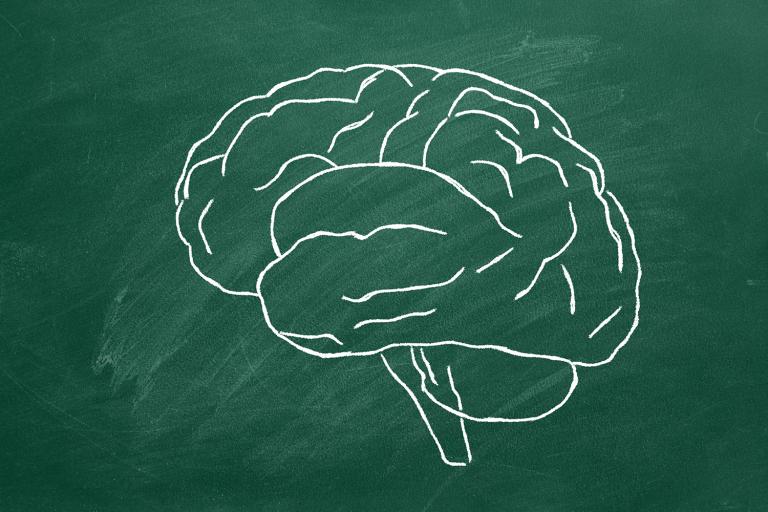Just about everyone in the US has experienced what it is like to alter brain function.
Maybe you had a cup of coffee and were suddenly more conversational, or a margarita and you were suddenly more conversational.
Maybe you were partially anesthetized for a dental procedure, and have hilarious videos to prove it.
These experiences show us we are not who we think we are. We are, at least partially, how our brain is currently functioning.
Brain Health and Personality
Our thoughts are influenced by a complex electrochemical soup that triggers emotions and actions.
Our memories are physically coded into special areas of our brain.
Our ability to walk, run, jump, and dance are coded into another area.
If the brain is not healthy, its poor functioning will manifest in thought and behavior changes.
An Invisible Disease
If we break a leg, no one is surprised that our walking ability is changed. But if the brain is not working correctly, and we exhibit sadness or lethargy or anxiety or some other unpleasant emotional state, we are often told to cheer up or settle down or get a grip.
No one tells a boy with a broken leg to just get up and walk, darn it!
Because brain functioning is not as visible, and because we are wedded to the idea that all behavior is—or should be—under our conscious control, people with these types of challenges are often stigmatized.
Therefore, it makes sense to take good care of our brain if our goal is healthy thinking, good memory, emotional stability, and predictable behavior.
Inflammation and Brain Function
Inflammation can create all kinds of havoc in proper brain functioning.
Inflamed tissues create neurotransmitter imbalances and suppress the brain’s auto-repair activity, called neurogenesis.
There are many dietary and lifestyle interventions that can reduce inflammation, including reducing sugar in the diet, increasing whole food consumption, and maintaining healthy levels of movement throughout the day.
There are also clinically proven supplements that have been shown to reduce brain inflammation.
Curcumin for Inflammation
The best all-around natural inflammation-reducing botanical is curcumin.
The Difference Between Turmeric and Curcumin
Curcumin is extracted from turmeric, but turmeric will not deliver enough curcumin for medicinal benefits in people with brain health concerns.
Turmeric contains only 2% to 5% curcumin. Turmeric is an excellent food, but curcumin is the natural medicine.
Studies on Curcumin
Studies on curcumin have shown it is effective for both depression and anxiety, and may be quite useful in other brain disorders, such as Parkinson’s and Alzheimer’s disease.
Initial animal research has demonstrated potential for this herb to help people with autism as well.
Enhanced Absorption
Early studies on ordinary curcumin required as many as 24 capsules a day to attain any serum levels of key compounds.
The best curcumin forms have enhanced absorption so that medicinal levels can be achieved with only 2 capsules a day.
BCM-95
One enhanced absorption curcumin is BCM-95, which uses turmeric essential oils rich in turmerones as the delivery system, and has four published studies on major depressive disorder (MDD).
It has been found that people with depression and anxiety both have elevated levels of inflammation in the brain.
In one human study, this curcumin was compared to the prescription drug fluoxetine (one brand name is Prozac) and found to be as effective as the drug without the major side effects.
BCM-95 has also been shown to be especially useful in atypical depression, which is often resistant to drug therapy.
How to Rebuild Your Brain
The omega-3 fatty acids from fish—eicosapentaenoic acid (EPA) and docosahexaenoic acid (DHA) —are crucial for proper brain health. About 60% of the brain is fat, and nearly 20% of your cerebral cortex is specifically DHA! If you are low on omega 3s, your brain will suffer. Not only are EPA and DHA anti-inflammatory, DHA is used in the brain cells themselves as part of the cell membrane.
Increasing healthy levels of EPA and especially DHA has great promise for schizophrenia, stroke, traumatic brain injury, depression, anxiety, autism and spectrum disorders, and more.
Even people without a serious brain disease can derive brain benefits from DHA and EPA from fish. In a published meta-analysis reviewing a variety of studies on mild memory problems associated with aging, using these two omega-3 fatty acids demonstrated significant improvements in memory in otherwise healthy older adults.
Another review article looked specifically at studies on DHA and found impact in almost every measure of cardiovascular health. This is important, because the same risk factors for heart disease are risk factors for strokes and other types of brain problems.
There is no question that omega 3s are beneficial for a healthy brain. However, there are an enormous amount of omega-3 products on the market, including oils from fish, squid (calamari), and krill, as well as more cutting edge extracts without oil from salmon. Losing the oil as a delivery system means you don’t have to worry about triglyceride content and/or rancidity.
The brain is a physical organ that responds to physical interventions. Helping to improve brain function in turn improves brain activity, whether it be mood, memory, or risk of disease. Lifestyle changes and clinically validated supplements can be more beneficial that once imagined, and it is never too late to late to make a difference.

